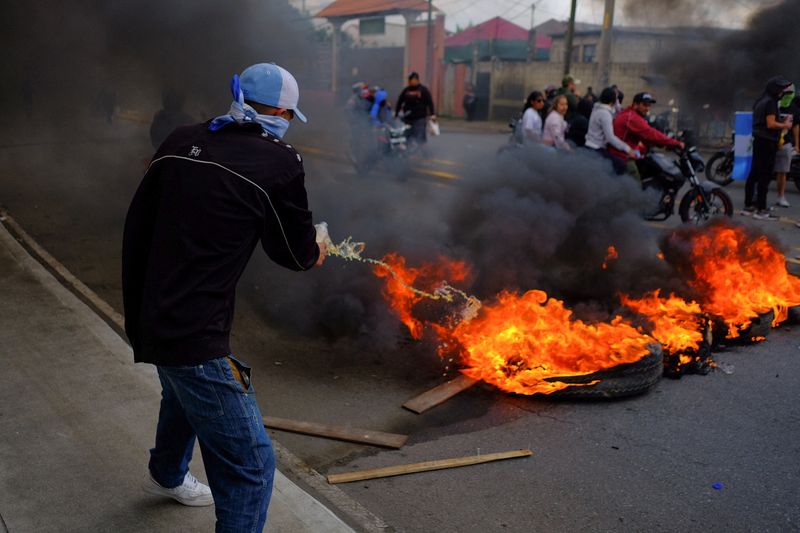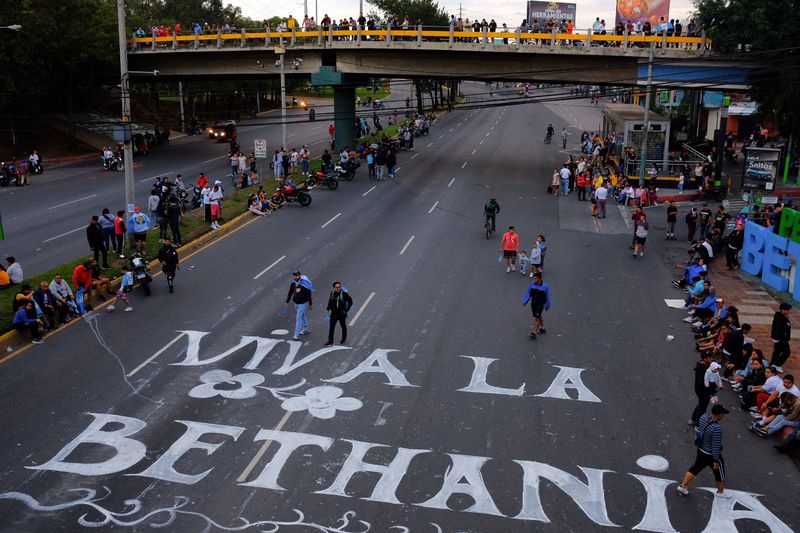By Sofia Menchu
GUATEMALA CITY (Reuters) - Guatemalan prosecutors are seeking to block the landslide winner of the country's presidential election from taking office, the head of the Organization of American States (OAS) said Tuesday, denouncing the push as a "shameful example for the hemisphere."
Luis Almagro, the chief of the Washington-based OAS, called the ongoing investigation by the Guatemalan Attorney General's Office into the party of President-elect Bernardo Arevalo and the electoral authority an unprecedented attack on Guatemala's democracy.
Running on an anti-corruption platform, Arevalo won the August run-off with a 20-point margin of victory.
Since last week, tens of thousands of Guatemalans have taken to the streets to protest what many have called a slow-motion coup, while demanding the resignation of Attorney General Consuelo Porras and other judicial officials collaborating with her inquiries.
"The prosecutors' office has chosen to ignore numerous calls from the international community and its behavior violates democratic norms," Almagro said.
"It continues to take measures that appear to be designed to override the will of the electorate," he added.
Porras' office did not immediately respond to a request for comment.
In the past, her office has justified its raids on Arevalo's Semilla party and the electoral body as necessary for lawful investigations into alleged irregularities during the election, especially claims that Semilla's registration six years ago was tainted by falsified signatures.
Isolated violent incidents were reported on Monday, which have since led to some banks, schools, supermarkets and restaurant chains, including McDonald's (NYSE:MCD), to temporarily close.
Overall, the protests have been largely peaceful.
Arevalo described the violent incidents as caused by "hit groups" looking to destabilize the protests.

Outgoing President Alejandro Giammattei has called the demonstrations illegal and warned that organizers - whom he accused of receiving funds from abroad - would be arrested.
Giammattei's office, in the run-up to the August vote, said it respected the autonomy of the government powers and that it would not interfere with judicial processes. The president has not publicly questioned Porras' investigations.
